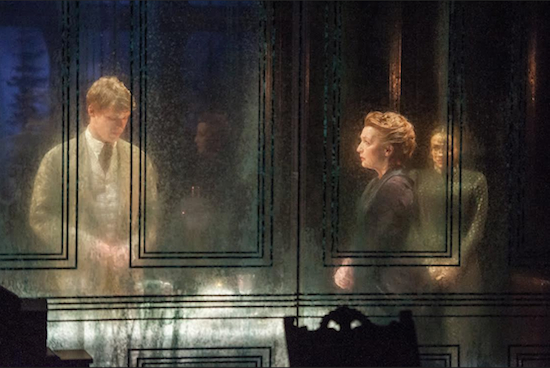Live at BAM: Ibsen’s ‘Ghosts’ retains youthful vigor after 134 years

It’s a good idea to enter a Henrik Ibsen play expecting to experience a range of heavy emotions as the drama unfolds. One may be relief that society is no longer repressive in the way that it was in the 1880s, when he wrote “Ghosts.” Another, perhaps, is a niggling sensation that comes from the knowledge that while the passage of time advances social norms, human nature tends to stay the same.
Almeida Theater and Sonia Friedman Productions is presenting an English-language production of “Ghosts” at the Brooklyn Academy of Music (BAM) this month, a year after BAM hosted Ibsen’s “A Doll’s House.” After its Chicago debut in 1881 — in Norwegian, by a Danish theater company — “Ghosts” was the subject of criticism and derision. Its commentary on themes of social repression, the futility of suffering for the sake of honor and the unjustness of rigid gender roles were a slap in the face of contemporary society.
